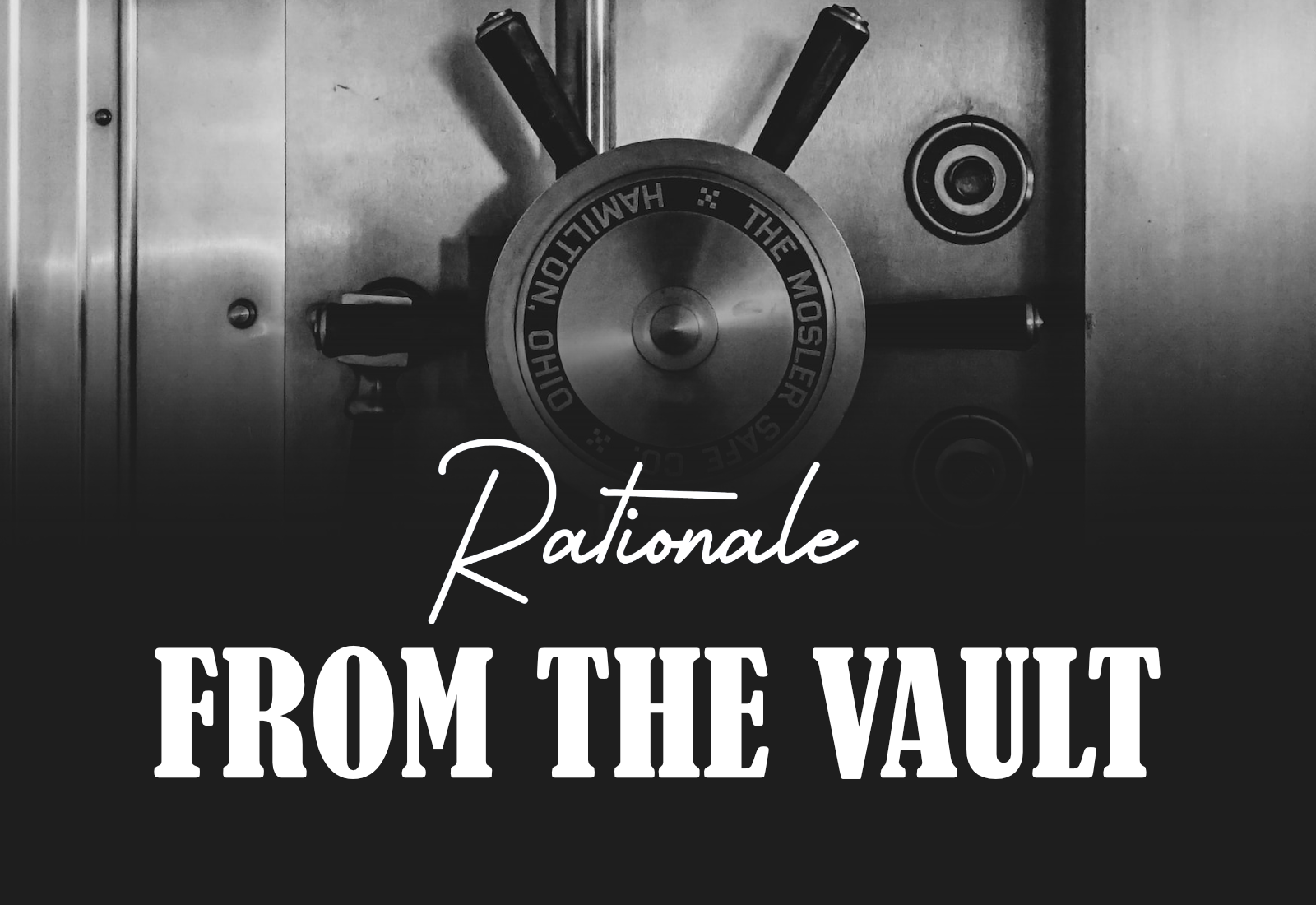This article is part of our ‘From the vault’ series of summer reading. It was originally published in the March 2019 edition of Australian Rationalist.
All too often, I come across the view that when we make moral judgments we are simply expressing our personal likes and dislikes. Saying “Hitler was bad”, in this view, is the same as saying, “I don’t like Hitler”.
For people who think morality is subjective, aspiring to objectivity in ethics is a chimera, to be avoided as a remnant of a bygone era of superstition and nonsense.
To some extent, this approach to moral judgements seems unavoidable, given the demise of religious world-views and other superstitious beliefs since the Enlightenment.
However, I think this radical subjectivism is mistaken. Moral discourse, at its core, is about giving objective reasons for our judgements about how we act towards one another and other sentient creatures.
When I refer to objectivity as essential to ethics, I am not speaking about some mind or human-independent metaphysical realm that imbues things and acts with value and obligatoriness. On the contrary, objective reasons in the field of ethics are juxtaposed with reasons that are partisan or biased to favour one individual or group.
Consider this scenario. You find out that your neighbour is secretly bribing his local politician in order to get favourable treatment and you decide to challenge his behaviour. He responds, “Oh yes! It’s the right thing for me to do.” When you ask him how he came to the conclusion that bribery is morally permissible, he answers, “Oh, because it helps me and my family get permission to build a bigger house.”
Quite rightly, you and anyone else listening would not regard his answer as a moral reason at all. In fact, we would consider it as its antithesis – a selfish and immoral reason. By its very nature, we expect a moral reason to be impartial, without appeal to the speaker’s peculiar interests or the interests of their favoured group.
Consider another case in which a person beats a stranger on a public roadway. When asked what moral justification the abuser had for beating her victim, she offers that she was bored. Naturally, we take this as self-serving and the converse of a moral justification.
The important point that these two examples illustrate is that the immoral nature of the two reasons given is not contingent. It is not the case that under some circumstances we think the reasons given could be moral reasons.
Rightly, we think the two people in these scenarios are conceptually confused about what constitutes a moral reason for action. This requirement for impartiality is built into the very concept of morality.
The principle of impartiality
Unfortunately, it is this requirement for impartiality that often gets confused. The requirement for objectivity in ethics gets conceptually confused with the need for some metaphysical mind, or human independent realm.
Objectivity in ethics should not be contrasted with subjectivity in the sense of being grounded in people’s attitudes and preferences. Objectivity in ethics is more correctly contrasted with subjectivity in the sense of being partisan, selfish and parochial.
Ethicists of different metaphysical persuasions have tried to satisfy this necessary requirement for objectivity by mistakenly dressing up moral language as if it is about some human- independent realm.
Theists identify the good and the right with God’s preferences and commands. Intuitionists conflate moral attributes with some mysterious realm of non-natural properties and transcendent rules. Neo-Aristotelians and Natural Law theorists rely on a dubious teleology of life’s evolution on earth. Kantian Rationalists try to derive moral rules from the demands of pure reason.
Objectivity in ethics is more correctly contrasted with subjectivity in the sense of being partisan, selfish and parochial.
When all of these attempts to ground morality in a human-independent metaphysical realm fail, the subjectivists claim victory for treating moral judgements as of the same type as any other kind of personal preference. But the subjectivists suffer from the same misconceptions about moral judgements as their metaphysical opponents.
Like the metaphysicians, they think moral objectivity must be grounded in a mysterious metaphysical realm, or not at all. They give up on the requirement of objectivity all too hastily.
There is a strong philosophical tradition in incorporating this notion of impartiality as essential to the nature of ethics. Immanuel Kant tried to capture this idea of universality in his categorical imperative – the notion that a moral rule necessarily must be such that it is willed for all.
R. M. Hare built it into his theory of universal Prescriptivism – the idea that moral judgements are prescriptions that we want to apply to everyone. Henry Sidgwick, J. S. Mill and later Utilitarians encapsulated moral objectivity with their principle of impartiality, translated as the requirement for the equal consideration of all interests.
Moral judgements v non-moral preferences
By treating all moral judgements as statements about subjective attitudes and preferences, subjectivists struggle to make the distinction each of us recognises naturally – the distinction between moral judgements and non-moral preferences.
They fail to distinguish moral imperatives from prudential considerations, the demands of social etiquette and other non-moral norms.
To illustrate what I mean, consider this scenario. After eating a friend’s cake that she so lovingly baked, your partner asks whether you liked it. You opine, ‘Mary’s cake is good.” Your friend Mary also works voluntarily at the local soup kitchen serving the homeless. Commending Mary’s volunteer work, you tell your friends, “Mary’s volunteer work is good.”
We quite naturally regard the former use of the word ‘good’, as it applies to Mary’s cake, as a non-moral use. Conversely, we understand the latter use, as it applies to altruistic volunteer work, as a moral use of the word ‘good’.
To account for this demarcation, the subjectivist may respond that the difference turns on the fact that the former evaluation does not apply to human behaviour, while the latter does. This won’t do, because prudential imperatives apply to human actions without being moral imperatives.
“To catch the next train, you ought to leave immediately” is an example of just such a prudential consideration applying to a human act. This leaves the subjectivists unable to make sense of a distinction we make naturally in our everyday discourse.
If moral reasons are, of necessity, objective reasons (in the sense indicated here of being impartial reasons), then this raises a crucial question: “Why should we act morally?” We could say that we should act morally because that is the right thing to do. However, to give a moral reason for acting morally simply begs the question.
On the other hand, we could appeal to reason. Applying the axioms of logic or rationality alone, though, will not give someone who has no inclination to act morally a logically, or rationally, conclusive reason to do so.
Moral reasons are not rationally binding reasons in isolation. No matter how many images of children starving in South Sudan we show a sociopath or a psychopath, they will not be moved to do anything to alleviate the suffering.
Fortunately, most of us are built genetically and raised socially to engender us with a disposition to act altruistically at least some of the time. This tendency is a consequence of our ancestors in our distant evolutionary past forming cooperative social groups.
For those social members on the margin of acting morally, we can appeal to prudential reasons for them to act impartially. Psychological research is revealing that people who place their interests and energies into activities that reach beyond their immediate personal indulgences lead more satisfying and rewarding lives.
Working within a wider social context, and for a larger purpose, gives a greater sense of meaning to the whole of a person’s life.
I have argued here that objectivity is a necessary attribute of ethical thinking. However, the ‘objectivity’ required is not objectivity in the sense of ‘independent of all human values and desires’ or ‘factually decidable’ like quasi-empirical propositions.
We can agree on rejecting religious and metaphysical explanations for the grounding of ethics. We have no need for some mysterious or empirically inaccessible metaphysical realm to legitimise our moral judgements.
Ethics requires objectivity in the sense of being independent of this person’s or that person’s subjective wants and values. To think ethically is the inverse of thinking egoistically or selfishly. To think ethically is to think impartially, as opposed to thinking parochially.
Given that objectivity in this sense is built into the foundation of ethics, it remains an open question what an impartial stance requires in theory and in practice.
Are the principles of impartiality many or one? Are they deontological or consequentialist, or a combination of both? Does impartiality favour the maximisation of value or the even distribution of value amongst individuals?
It is questions such as these, and the practical application of answers to the enduring ethical dilemmas of our day, that make normative ethics so difficult for even the best and fairest moral thinkers.
This nebulous requirement for impartiality explains why many important ethical questions appear so intractable to the people on opposing sides of an ethical disagreement. It is this question of how impartial moral agents would act on quandaries about a just war, abortion, voluntary euthanasia, animal suffering, the social distribution of wealth, and so on, that drives home how an objective ethical standpoint leaves much room for rational debate amongst ethicists.
Photo by Jason Dent on Unsplash.




